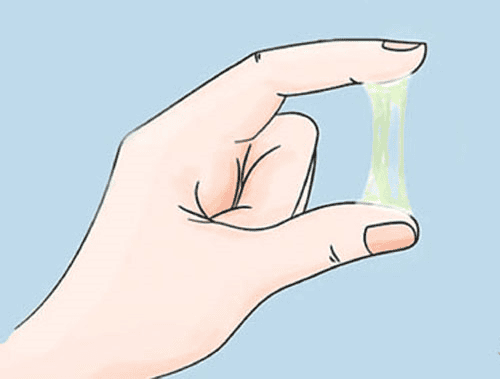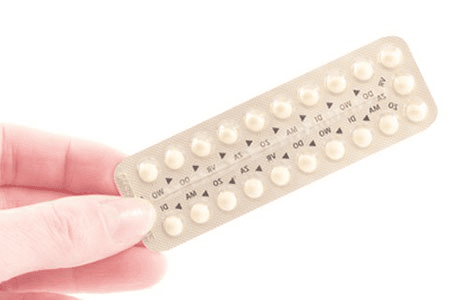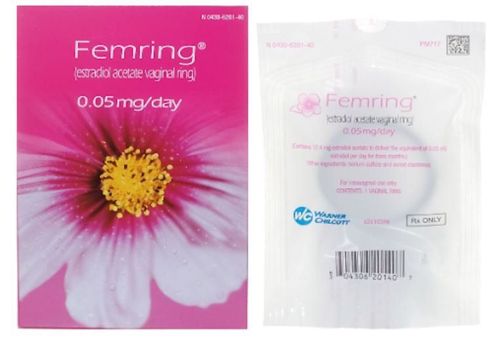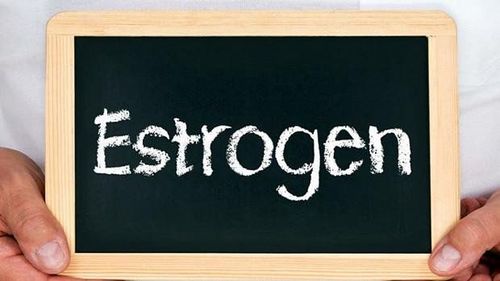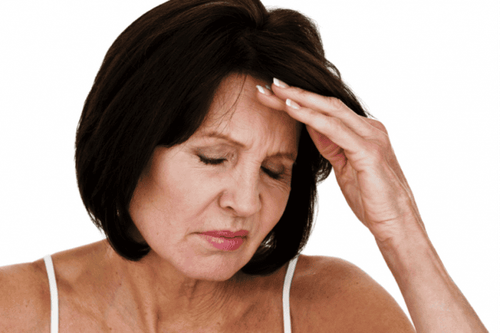This is an automatically translated article.
Menopause is considered early when it occurs before the age of 40. Early menopause can cause many complications for women. Although the symptoms of menopause can be uncomfortable, a proper diet and regular exercise can help alleviate and prevent early menopause.
1. What is early menopause?
As a woman's age increases, her body produces less estrogen and progesterone, which are the main hormones involved in the reproductive process in women. When these hormones reach a low enough threshold, a woman's period stops.
Menopause officially begins 12 months after a woman's last period. Most women begin their menopause between the ages of 44 and 55, with the average age in the US being 51 years old. But for some women, menopause comes earlier.
If you're between the ages of 35 and 45 and haven't had a period for 3 months or more, you're probably going through menopause earlier than usual.

Độ tuổi mãn kinh trung bình của phụ nữ là từ 45 - 55 tuổi
2. What are the symptoms of early menopause?
Symptoms of early menopause are similar to those of normal menopause. Some common symptoms include:
Irregular menstrual cycles Amenorrhea Hot flashes Night sweats Vaginal dryness Mood fog Low sex drive If you haven't had your period If your period is within 3 months or more, you should see your doctor. There are many causes of amenorrhea outside of menopause, such as:
Stress Pregnancy Pathology Changes in diet or exercise Reactions to medications or birth control A lack of estrogen along with missed periods Menstruation can lead to a loss of bone mass. Early treatment can help stop bone destruction.
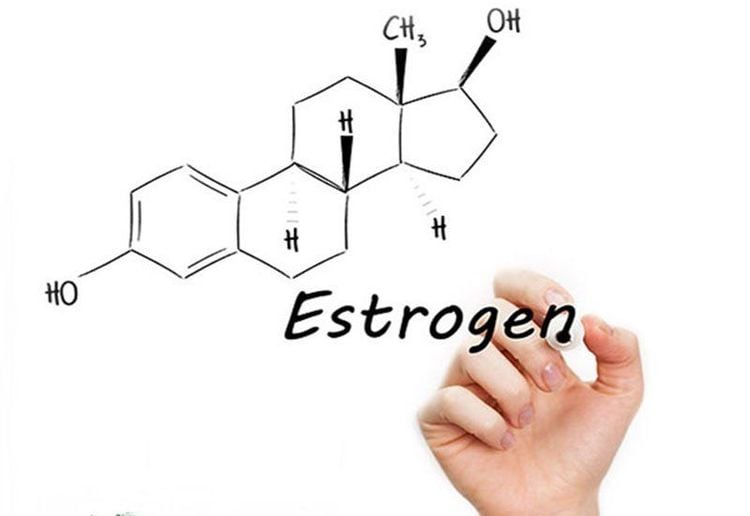
Thiếu hụt estrogen làm ảnh hưởng đến khối lượng xương trong cơ thể
3. Causes of early menopause
Premature menopause can occur for two reasons: follicular failure or follicular dysfunction.
When these causes occur, the egg will not mature or be released, causing a woman's menstrual cycle to stop. These processes are considered normal when they occur as a woman ages. But if they appear early, your doctor will check to find the cause.
Follicular failure and follicular dysfunction can be caused by many reasons:
Age . The risk of early menopause increases after age 35. Family history . Having a blood relationship with women who have had early menopause also increases your risk. Hereditary disorder. Carries abnormal chromosomes or genes, such as Turner syndrome or Fragile X syndrome. Exposure to chemotherapy drugs and radiation therapy used to treat cancer also affects the onset of early menopause. Autoimmune disease. When the immune system mistakenly attacks the body's hormone-producing organs, affecting the ovaries Infection . Being infected with certain microorganisms (eg, mumps virus). Surgery . Procedures such as bilateral oophorectomy or hysterectomy can cause early menopause.
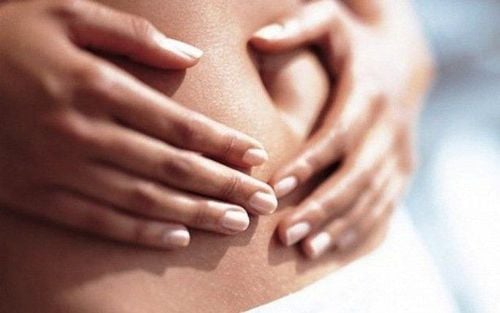
Cắt bỏ tử cung cũng có thể dẫn tới mãn kinh sớm
4. How is early menopause diagnosed?
The doctor will collect information about the symptoms and menstrual cycle.
Inquire about your history of exposure to toxins (such as chemotherapy drugs or radiation therapies) Get a physical exam (including a pelvic exam) Take a pregnancy test Get a blood test hormone tests, including: follicle-stimulating hormone (FSH), estradiol , prolactin , and AMH hormone DNA test to check for genetic causes of early menopause
5. What complications does early menopause cause?
Early menopause can increase your chances of developing other health problems. Includes:
Infertility. Most women who experience early menopause are unable to get pregnant. Stress, anxiety disorders, depression. Psychological changes caused by the loss of fertility and health problems of early menopause Osteoporosis. Caused by low estrogen levels and putting women at increased risk of bone fractures. Cardiovascular disease. Heart disease can also be caused by low estrogen levels.

Mãn kinh sớm làm tăng nguy cơ bị vô sinh
6. Treatment plan
Based on the specific condition of each patient, the specialist doctor will make a treatment plan. Some common treatments for people with early menopause include:
Hormone replacement therapy Estrogen and progestin supplements can help replace some reproductive hormones that your body can't make on its own. more. These supplements are often used until the average age of menopause (around age 50) to manage the uncomfortable symptoms of early menopause.
This treatment also helps you stave off osteoporosis and supports strong heart health.
This treatment is not recommended for all women because it may increase the risk of:
Stroke Blood clots Breast cancer Discuss the benefits and risks of these options with your doctor Treatment choice is very important.
Natural Ways to Relieve Menopause Symptoms Calcium and Vitamin D Supplements Hormonal changes during menopause can cause bones to weaken, increasing the risk of osteoporosis. Calcium and vitamin D are closely linked to bone health, so it's important to get adequate amounts of this nutrient with your meals. Adequate vitamin D intake in postmenopausal women is also associated with a reduced risk of hip fracture due to weak bones. There are many foods rich in calcium including dairy products such as yogurt, milk, and cheese. Green, leafy vegetables like kale, collard greens, and lettuce contain lots of calcium. Calcium is also found in tofu, beans, sardines and other foods.
Plus, calcium-fortified foods are also good sources of nutrients, including certain cereals, juices or milk alternatives (non-animal milks). Sunlight is the main source of vitamin D, because when exposed to sunlight, the skin will synthesize this vitamin. If you don't get a lot of sun or often shield your skin, choose a way to supplement or increase your intake of foods rich in vitamin D. Rich sources of nutrients include oily fish, eggs. , fish liver oil and foods that help fortify vitamin D.

Gia tặng lượng thực phẩm giàu vitamin D để giúp xương chắc khỏe
Get and maintain a healthy weight It is normal to gain weight during menopause. This happens due to a combination of hormonal changes, age, lifestyle and genetics. But gaining too much weight, especially around the waist, increases the risk of developing diseases like cardiovascular disease or obesity.
Plus, body weight can influence menopausal symptoms.
A study of 17,473 postmenopausal women showed that those who lost 4.5 kg or 10% of their total body weight within 1 year were more likely to not experience hot flashes or hot flashes. night sweats.
Eat more fruits and vegetables A diet rich in fruits and vegetables may help prevent some symptoms of menopause.
Fruits and vegetables are low in calories and can help you feel full, making them great for weight loss and maintenance.
They also help prevent certain diseases, including heart disease. This is important because the risk of heart disease usually increases after menopause. This could be due to several factors such as age, weight gain and possibly a decrease in estrogen levels.
And finally, fruits and vegetables also help prevent osteoporosis. An observational study of 3,236 women aged 50 to 59 found that diets high in fruits and vegetables also led to a reduction in bone damage.
Stay away from trigger foods Certain foods can cause hot flashes, night sweats and mood swings. They can also irritate you when you eat them in the evening.
Common allergens are caffeine, alcohol, and foods high in sugar or spicy. Record your symptoms in a diary. If you feel that particular foods are triggering the onset of menopausal symptoms, try to reduce your consumption or avoid them altogether.

Hạn chế sử dụng rượu bia và các loại thực phẩm gây kích thích
Exercise Regularly There is currently insufficient evidence to confirm whether exercise is effective for treating hot flashes or night sweats. However, there is evidence that exercise offers other benefits. Including improved energy and metabolism, stronger joints and bones, reduced stress and better sleep.
For example, one study found that exercising 3 hours a week for a year improved physical and mental health and overall quality of life in a group of postmenopausal women.
Regular exercise makes for better health and protects you from diseases and conditions like cancer, heart disease, stroke, high blood pressure, type 2 diabetes, obesity and osteoporosis.
Eat more foods rich in phytoestrogens. Phytoestrogens are compounds from naturally occurring plants that mimic estrogen in the body, so they can help balance hormones. The high use of fenugreek in Asian countries such as Japan is believed to be the reason why women in these places rarely experience hot flashes. Foods rich in phytonutrients include soybeans and soy products such as tofu, tempê, flaxseed, sesame, and legumes. However, the phytonutrients contained in foods will vary depending on how they are prepared.
One study found that soy-rich diets were associated with lower cholesterol levels, blood pressure, and also reduced severity of hot flashes and night sweats in women who started early menopause.
However, debate still arises about whether soy products are healthy or not. Evidence shows that phytonutrients are actually better than fortified foods or processed foods with added soy protein.

Đậu nành là nguồn cung cấp thực vật tố nữ dồi dào
Drink enough water During menopause, women often experience dryness. This is caused by a lack of estrogen levels. Drinking 8 to 12 glasses of water a day can help ease this symptom. Drinking plenty of water also reduces the bloating that can appear when hormones change. Plus, water helps prevent weight gain and aids weight loss by making you feel full and helping with a slight increase in metabolism. Drinking 500ml of water 30 minutes before eating can help you consume 13% less calories of a meal.
Reduce consumption of refined sugar and processed foods A diet high in calories and refined sugar can cause sudden spikes and drops in blood sugar, making you tired and irritable. In fact, one study found that diets high in refined calories increase the risk of depression in postmenopausal women.
Diets high in processed foods can also affect bone health. A large observational study has shown that women aged 50 to 59 who eat a diet high in processed foods and fast foods have poor bone quality.
Stop Skipping Meals Regular eating is important as you go through menopause. Eating irregularly can make menopausal symptoms worse and can even hinder efforts to control weight. A year-long weight management program in postmenopausal women found that skipping meals resulted in 4.3% less weight loss.
Eat protein-rich foods Regularly eating protein-rich foods throughout the day can help prevent the loss of muscle mass with age. One study even showed that consuming protein at every meal of the day can slow age-related muscle loss. To help prevent the loss of muscle mass, high-protein diets also enhance muscle growth and increase calorie burn. Protein-rich foods include meat, fish, eggs, legumes, seeds, and milk.
Menopause is not a disease. It is a natural part of a woman's life.
Going through menopause early can be a big challenge. See a specialist to address any concerns you may have.
Learning more about your condition will help equip you with the knowledge you need to make informed treatment decisions.
Customers can directly go to Vinmec Health system nationwide to visit or contact the hotline here for support.
Articles refer to the source: healthline.com




